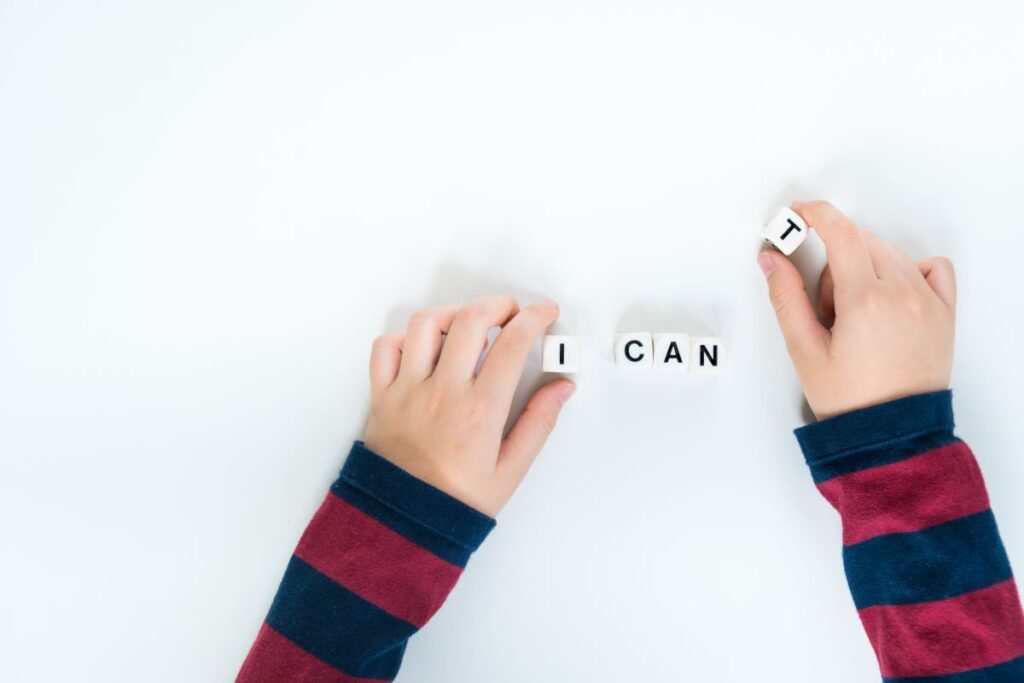In today’s competitive and ever-evolving educational environment, educators helping in nurturing student self-esteem has become critical in fostering academic achievement. Self-esteem is the foundation on which students build confidence, resilience, and a positive mindset. These traits help students overcome challenges and achieve their full potential. When students believe in their abilities and recognize their value, they’re more inclined to participate in class, take risks, and persevere in the face of adversity. Fostering this “can-do” attitude and building student confidence can and will prepare students for success.
The Importance of Self-Esteem in Students
Self-esteem plays an essential role in the development and success of students. It serves as the foundation on which they build their sense of self-worth. When students have a healthy amount of self-esteem, they are more likely to take risks because they know that any setback is only temporary and that they can get over it. Self-esteem also influences their motivation to learn. When students have high self-esteem, they are more apt to participate in class and share their opinions.
Numerous studies have established a strong correlation between high self-esteem and academic achievement. For example, one study in the Journal of Applied Sciences suggested that a student’s level of self-esteem played a crucial role in shaping their academic accomplishments. Additionally, they found that students who received higher grades had higher levels of self-esteem. Overall, fostering students’ self-esteem is essential for empowering them to reach their full potential both emotionally and academically.
Nurturing Student Self-Esteem
As a teacher, you play a vital role in fostering a student’s sense of self-worth. Here are some specific strategies that you can employ to help nurture students’ self-esteem.
Focus on all Achievements and Success
It is important to focus on all achievements and successes, no matter how big or small. Celebrating achievements helps students develop a positive self-image and a sense of self-worth. It reinforces the belief that they are capable of their achievements. When students see their successes, they become more motivated to take on new challenges. Take the time to value and appreciate each student’s unique strengths and accomplishments, by doing so you will not only boost your students’ confidence and self-acceptance but also help to cultivate a classroom environment of respect.
Set Realistic and Attainable Goals
Help students set realistic goals that match their abilities and provide opportunities for success. When students can achieve their goals, it will give them a sense of accomplishment and boost their confidence. Moreover, when goals are attainable, students learn their hard work pays off. It also gives students a sense of purpose. When they see their objectives are in their grasp, they will be more motivated to learn, which in turn gives them more control over their own success.
Help Foster a Growth Mindset
Teach students about the power of a growth mindset. Help them understand that their abilities are not fixed and can grow and develop over time. Instead of focusing on a student’s grade, talk to them about the value of the learning process. Empathize that they will make mistakes, and there will be setbacks, but that is okay because learning is a journey and once, they learn to value this process, they will become more self-aware and adopt a growth-oriented mindset. Provide students with constructive feedback and encourage them to reflect upon their studies. Share stories of your own failures and growth to help to stress the value of perseverance.
Foster a Positive/Safe Classroom Environment
A positive classroom environment is crucial in nurturing student self-esteem because it gives them a sense of belonging. When students feel accepted and included it will give them confidence in their abilities. A safe classroom also creates a space for students to feel safe. When they feel safe, they feel free to express themselves, take more risks, share their thoughts, and actively participate which can all help students to develop a positive self-image.
Promote Independence
Encouraging autonomy in students can positively impact their self-esteem because when students are given opportunities to make decisions and take ownership of their learning, they develop a sense of competence. As they experience success, they develop confidence and their self-esteem increases. Provide opportunities for students to make choices and take ownership of their learning. Encourage them to express their opinions, solve problems, and make decisions, this will help to enhance their sense of competence and self-worth.
Model Resilience
Modeling resilience is an effective way to help students increase their self-esteem because it encourages them to view mistakes and failures as an opportunity for growth. Share stories of your own experiences and setbacks and how you overcame them. This will help students understand that setbacks are a normal part of life and can be overcome with determination and persistence.
Demonstrate your problem-solving skills by talking through your thinking process. As you explore different solutions, model resilience by not giving up until a resolution is found. Be sure to show how you manage and regulate your emotions during this process. Stay calm and composed while talking through your problems as well as demonstrate how you are coping through the process such as through positive self-talk or breathing techniques.
Differentiated Instruction
Differentiating instruction can positively impact students’ self-esteem because you can tailor your teaching methods to meet the needs of each student’s interests, abilities, and learning styles. Providing personalized instruction and support allows students to experience success and feel valued as individuals. This approach not only acknowledges students’ individuality but also builds upon their strengths, supports their challenges, as well as fosters a positive self-perception and self-esteem. Consider providing students with materials that cater to different learning preferences and abilities. Offer a mix of visual, auditory, and kinesthetic resources, such as online videos, hands-on activities, interactive simulations, and written texts. This allows students to engage with content in ways that suit their learning styles, fostering a sense of competence and success.
Nurturing student self-esteem is a vital element for fostering success in education. Educators can play a pivotal role in boosting students’ self-esteem by creating a positive classroom environment, encouraging independence, differentiating instruction, and modeling resilience. When students feel valued, and supported, they are more likely to take risks, embrace challenges, and reach their full potential.
Educators never stop learning; check out our available graduate degree programs to hone your skills and promote lifelong learning and academic excellence.




